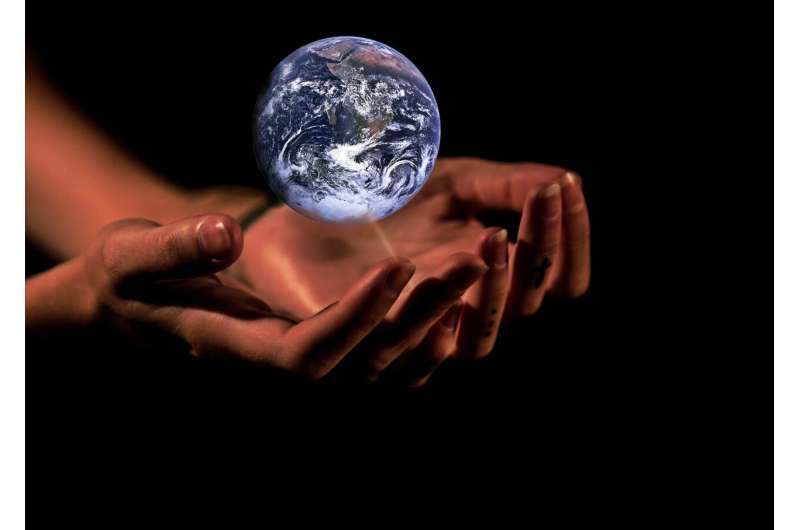
Think beyond the infant in your arms. That’s the call to action a University at Buffalo epidemiologist is stressing in a new line of research investigating the long-term effects climate change is likely to have on birthing parents and future generations.
“Much of the work happening around reproductive health is based on short-term support and services for families, and that’s very important work. But we need to think beyond the immediate goal of a healthy infant in our arms and address the long-term implications of climate change on reproductive health,” says Pauline Mendola, Ph.D., chair of the Department of Epidemiology and Environmental Health in UB’s School of Public Health and Health Professions.
Mendola is a co-author on a recent paper in the journal Fertility and Sterility with Sandie Ha, Ph.D., of the University of California, Merced, that outlines some of the ways in which climate-related events will influence the risks of long-term health impacts for birthing parents and multiple generations of offspring.
“We can already observe climate-related effects on reproductive health and we are only at the beginning of the anticipated declines associated with continued global warming and increased frequency of extreme events,” they write.
When people think about how climate change will impact their lives, their concerns typically center on things like more frequent and intense storms, wildfires and melting glaciers. But an increasing amount of research is pointing to the role of climate change on long-term and intergenerational health.
Still, a significant proportion of the public remains unaware of the human health implications, the researchers say, pointing out that as climate conditions continue to deteriorate in future generations, less healthy parents will give birth to less healthy offspring.
“As climate-related events become more frequent and intense, evidence suggests that their impacts on health may accumulate across the lifespan for birthing parents,” Mendola and Ha write. “What is even more concerning is that these health impacts may cause a repeating intergenerational cycle and magnify across generations.”
The frequency and severity of exposure to extreme weather events, rising sea levels and infectious disease risk that people face will increase over time with greater global warming. For younger generations, the burden of all of these stressors “is likely to be overwhelming,” says Ha.
“Parents who are already dealing with the stress of infertility and treatment will face the added burden of climate-related strains,” Ha adds.
Previous research has already linked global warming and extreme weather events due to climate change—such as drought, flood, hurricanes and wildfires—with multiple chronic complications like cardiovascular and respiratory diseases, as well as decreased fertility.
Before conception, health problems associated with climate change contribute to an increased risk of gestational complications, including hypertensive disorders of pregnancy and gestational diabetes, according to Mendola and Ha.
Even for parents who can conceive without medical assistance, climate-related events may put them at increased risk of adverse pregnancy outcomes, including pregnancy loss and preterm birth.
In addition, the consequences of these climate-related events can heighten depression and other mental health problems as families cope with the loss of loved ones or property, long-term disruption of infrastructure and food insecurity.
The impact of climate stressors on human reproduction, especially future generations, is a growing concern, Mendola says. For example, if projections don’t improve, the world could be nearing a 2-degrees Celsius increase in temperature by 2050, when today’s infants are attempting pregnancy and birthing the next generation.
Mendola and Ha also say it’s important to keep in mind social determinants of health. In this case, how the people with the fewest resources, who often contribute least to climate change, will bear a disproportionate burden.
Source: Read Full Article
